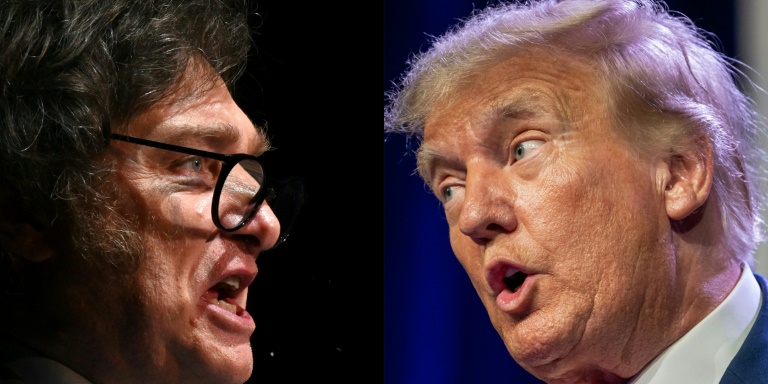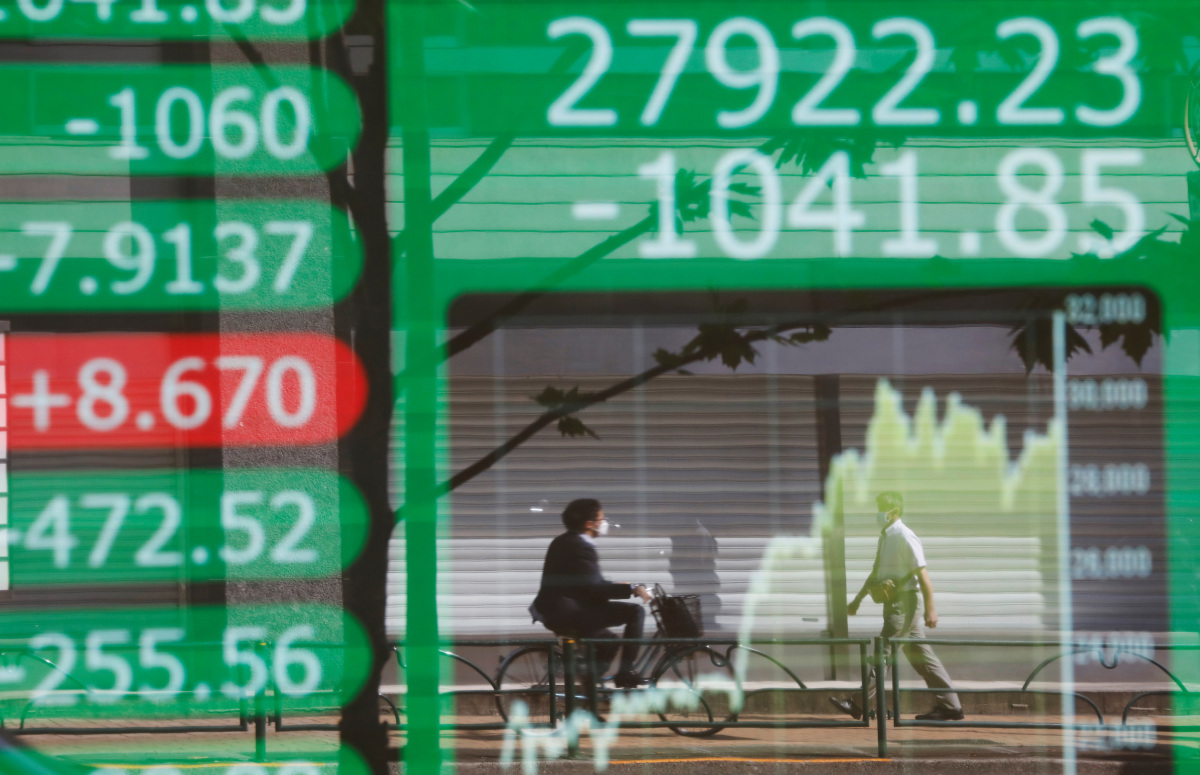They are both abrasive, have a penchant for insults and vulgarity, and boast an untamed mop of hair.
However, comparing Argentina’s president-elect Javier Milei to former US president Donald Trump could be misleading, analysts say.
In the same way that the US media dubbed former Brazilian president Jair Bolsonaro the “Trump of the Tropics”, headlines were quick to refer to Milei as the “Trump of the Pampas” – referring to Argentina’s vast flat grasslands.
“There are some similarities but there are probably more differences,” said Michael Shifter of the Inter-American Dialogue think-tank in Washington.
He said Milei was the product of “an Argentine phenomenon… and the depth of the crisis and widespread desperation that people feel.”
Milei, a 53-year-old libertarian outsider, stormed to victory in Argentina’s presidential election threatening to upend the establishment, and seizing on voter anger over annual inflation of 140 percent and soaring poverty levels.
A showman, like Trump, Milei first grabbed public attention via appearances as a television panelist, where he would rant about the government’s failures, with little concern for political correctness.
He and his allies sought to ignite culture wars such as those taking place in the United States, around gun rights, abortion, feminism and gender issues.
However, pre-election polls showed that most voters — more concerned with the economy, security, and corruption — backed him in spite of these views, not because of them.
Milei’s unexpected surge in popularity delighted conservatives to the north, with US firebrand Tucker Carlson flying to Buenos Aires to interview him, and Bolsonaro’s son joining him at his campaign headquarters for the first-round vote.
His vow to return Argentina to its “golden age” when it was one of the world’s richest countries at the dawn of the 20th century also harked back to Trump’s “Make America Great Again” slogan.
Trump, like Bolsonaro, has expressed delight at Milei’s win, sending him a message saying he was sure he would “make Argentina great again.” He also promised a trip to Buenos Aires to meet with him after a phone call on Thursday, Milei’s press office confirmed.
“Far-right figures are giddy about Milei’s victory and will attempt to recruit him to their global movement,” said Benjamin Gedan, director of the Argentina Project at the Washington-based Wilson Center
“He clearly sympathizes with many of these individuals and their political parties. That said, there are signs he will chart a more independent course.”
Gabriel Vommaro, a sociologist and political analyst based in Argentina, told AFP it would be a mistake to assume the two men are part of the same movement “without taking into account local particularities.”
Milei won against Economy Minister Sergio Massa, who had overseen the country’s crippling inflation, after decades of decline. Many voters told AFP they considered Milei the lesser evil.
And he is far more of an outsider than Trump or Bolsonaro were, having only formed his Libertad Avanza party less than two years ago, which has only 38 out of 257 seats in Congress.
“The problem with Milei is that he is likely to be weak rather than very strong. Is he closer to Trump or to Pedro Castillo?” said Gerardo Munck, an Argentine professor of international relations at the University of Southern California.
Castillo was an inexperienced Peruvian outsider who was sacked in 2022 by an opposition-dominated Congress after he tried to dissolve it and rule by decree.
While Milei believes the free market should determine all commercial relationships, Trump is a nationalist who defends protectionism and local industry.
“His ideas are very different, Milei is a libertarian, Trump is the farthest thing from a libertarian you could imagine,” said Shifter.
Milei also vowed to do away with several government ministries and the central bank.
“Milei is much more of an ideologue in some ways. Trump is not a true believer, he is only a true believer in himself,” Shifter added.
With his country on the brink of economic disaster, Milei has also toned down some of his rhetoric after the election, taking a more conciliatory tone towards China for example, after previously vowing not to do business with the country.
“Argentina is bankrupt and flirting with hyperinflation. It needs all the friends it can get,” said the analyst Gedan.







